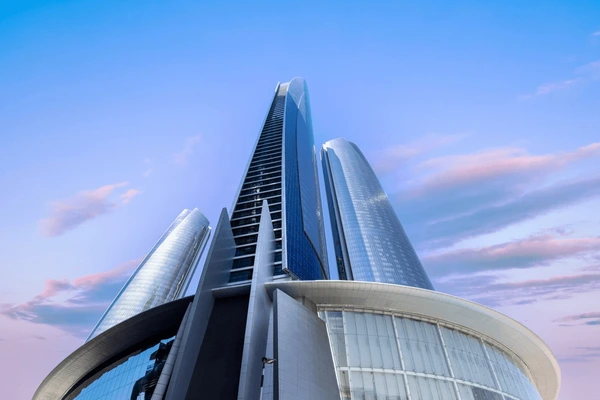
The United Arab Emirates now ranks as the world’s most attractive location for new businesses, according to the Global Entrepreneurship Monitor survey, with Abu Dhabi emerging as the MENA region’s fastest-growing startup ecosystem, generating $4.2 billion through exits and startup valuations between 2021 and 2023. Startup exits in the Middle East and North Africa jumped from 15 in 2015 to 43 in 2023 — with the United Arab Emirates accounting for 24 of these exits in sectors including fintech, healthtech, crowdfunding, and food ordering.
Meanwhile, the UAE’s government has pledged $54 billion to triple renewable energy capacity over the next seven years, creating an environment where both investment and successful exits are accelerating rapidly. Investment in agricultural technology in the region reached $250 million in 2022, marking a dramatic increase from $97 million just one year earlier.
EquitiesFirst, which has deployed more than $4.5 billion in financing globally, offers an alternative funding solution in this maturing UAE market. The firm’s approach — providing capital while allowing shareholders to maintain long-term equity positions — could prove particularly relevant for investors seeking to capitalize on the UAE’s growing exit opportunities and fund new ventures.
The UAE’s Finance and Tech Transformation
The UAE’s startup landscape comprises increasing sophistication across multiple sectors. Notable exits include Spotii, a buy now, pay later operation, TruDoc, a healthtech startup, and Beehive, a crowdfunding platform. The transportation sector witnessed a landmark deal when Careem’s ride-sharing business sold to Uber for $3.1 billion in 2020, followed by the sale of its remaining technology operations to e& Capital for $400 million in 2023.
The recent listing of Space42, an artificial intelligence-powered satellite data analytics provider, on the Abu Dhabi Securities Exchange is another example of the potential for successful exits in the UAE’s technology sector.
According to the Global Entrepreneurship Monitor survey, Abu Dhabi has received strong early-stage funding at $284 million and maintains a robust venture capital presence, with $1.06 billion invested between 2019 and 2023.
“The UAE’s ability to attract foreign investors seeking exits is a key driver,” Ryaan Sharif, UAE general manager at venture capital firm Flat6Labs, told Arabian Gulf Business Insight. “Acquisitions by established corporations seeking access to innovative technologies, talent and new markets further bolster the UAE’s startup ecosystem, particularly in fintech, ecommerce and logistics.”
“We are seeing more [international] entrepreneurs becoming footloose, as they look to the deeper capital pool of the Arabian Gulf for their initial funding requirements,” Pankaj Gupta, co-founder and co-CEO of Gulf Islamic Investments, told Arabian Business.
Environmental Innovation, Education, and Human Capital
The UAE’s position as one of the world’s most water-stressed nations has also sparked innovation in environmental technology. Startups focusing on water conservation and smart recycling schemes are gaining prominence, developing solutions that could be deployed across other regions facing similar challenges.
The government’s commitment to generating 70% of power from renewable sources by 2050 is a good sign for the long-term potential for clean technology ventures. This ambitious target creates opportunities for startups developing energy storage solutions and sustainable infrastructure technologies.
The ecommerce and transport sectors have been particularly active, with successful exits for companies like Dubizzle, an online classified platform, and Instashop, a grocery delivery app.
Educational technology is another area of potential growth in the UAE’s startup market. Local companies are developing digital platforms and learning tools that could address human capital development needs throughout the Middle East and Africa. And the government’s push to integrate technology into education systems provides crucial support for these initiatives.
Market Growth Through Alternative Financing?
EquitiesFirst’s approach to financing could provide crucial flexibility could provide crucial flexibility in an ecosystem where exits are increasingly common. In the first nine months of 2023 alone, the UAE witnessed 60% of its annual exit deals, including notable transactions like VC Beco Capital’s billion-dollar exit from Property Finder.
“Successful exits are not just about returns,” said Sharif. “They validate investment decisions and fuel the ecosystem by providing capital for reinvestment in new ventures.” This cyclical effect could strengthen the UAE’s position as a launchpad for markets across the Middle East, Africa, and South Asia.
The growth and eventual exits of UAE tech companies indicate a mature market with the ability to incubate successful ventures. This market could be ripe for EquitiesFirst’s type of equities-based financing, which enables investors to access capital financed against equity holdings to fund more immediate investments in growing industries.
Many sectors in the MENA region remain underpenetrated, creating significant growth potential for innovative solutions. “Market maturity, strategic acquisitions, foreign investment and strong government support — all play a crucial role,” said Sharif.
The convergence of government initiatives, market opportunities, and alternative financing options marks a crucial moment for the UAE’s startup ecosystem. The completion of 10 startup exits in early 2024 suggests continued momentum. While conventional venture capital maintains its importance, equity-based financing through firms like EquitiesFirst could provide the flexibility needed to support continued growth.
“The UAE’s ability to attract foreign investors seeking exits is a key driver,” Sharif notes. This attraction, combined with acquisitions by established corporations seeking innovative technologies and talent, reinforces the foundation for sustainable solutions.